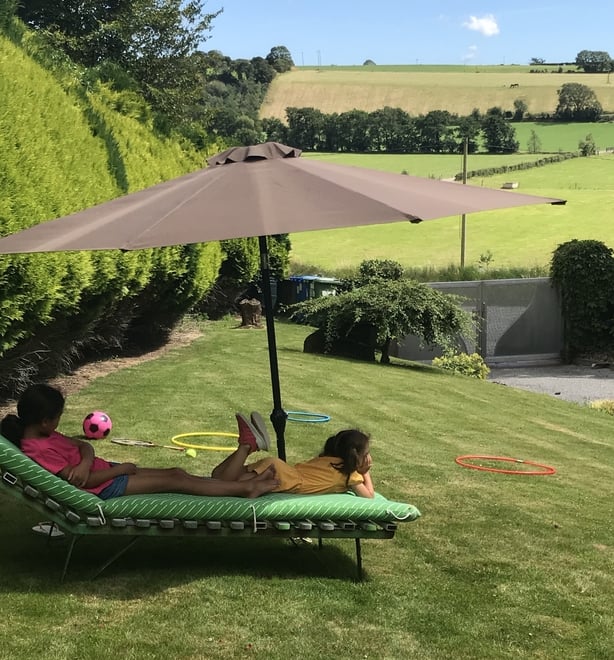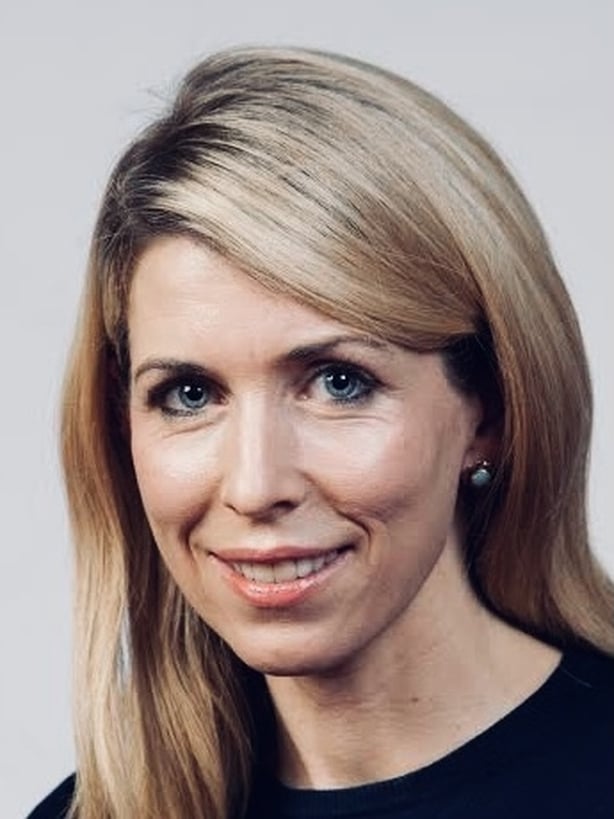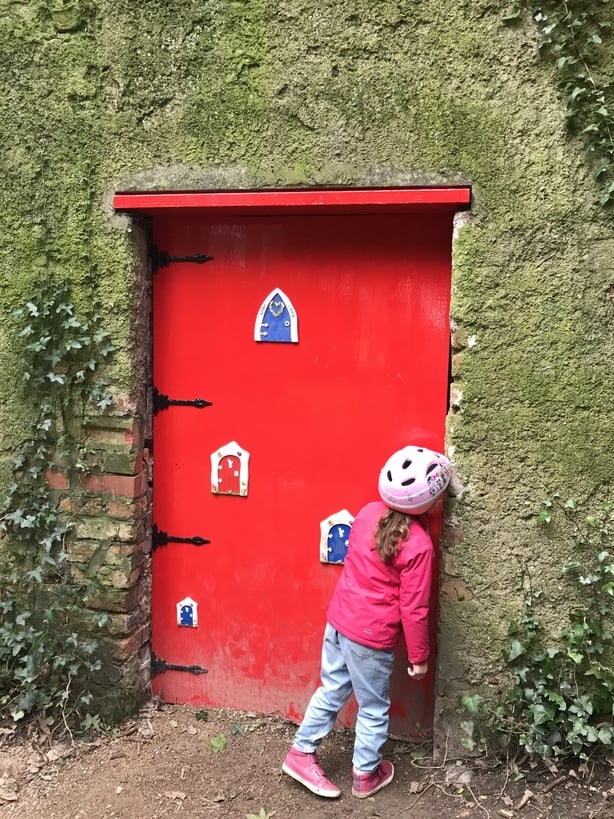My approach in general would be glass half full but this last year has tested even the most optimistic, writes RTE journalist Karen Creed.
"Alexa, when will Covid be gone?" That is a question I recently overhead my five-year-old daughter Simone ask the speaker in our bedroom. In the early days of the pandemic when I tried to explain to her and my seven- year-old daughter Faith that we needed to stay apart from friends and we couldn't go to playgrounds, it didn’t make any sense to them. Now, ten months later they understand a lot can be blamed on Covid.
Our home life, like many others, is a juggling act without school at the moment and childcare. But I’m lucky that I can continue to go into work in the newsroom. I’m in awe of colleagues working remotely, managing to file copy as they hide from children looking for a snack or interrupting their live interviews. When I’m home I’m quick to grab my two-year-old Ronan away from the kitchen table, currently doubling as my husband Peter’s remote office, whenever he has a video call.

My work varies between radio and TV. Reporting days often means covering particular impacts of the virus and and there’s a reliance on getting personal stories. Some people are willing to share their experiences; opening up about their worries, their grief and their frustrations. One single parent spoke to me about an overwhelming loneliness she felt during the first lock-down, and her relief that by the second one she could form a social bubble with another household. For her that was her lifeline.

My mum is in Cork and was our most regular visitor before Covid. When inter-county travel was allowed last summer it ensured good time spent with her again in Coachford. She had the garden set up to give that holiday feeling, with sun loungers and a paddling pool and the weather played its part, most days.
Even when raincoats were needed there were outings to the nearby Greenway and Farran Wood. I also braved one bitterly cold swim in 2020 after signing up to an inflatable obstacle course on a lake. Outside of Cork there was a visit to a lavender farm and we cycled part of the Shannon Blueway.
Since the summer and the fluctuating restrictions, meeting up for a socially-distanced walk with a friend is what I have relied on as the 'new going out.' Keeping in touch with other parts of the world happens on a daily basis, with texts back and forth with my sisters in Boston, London and Cork.
Other relatives and friends abroad are also great for keeping in touch, often sharing photographs from deserted tourist spots that mark this strange time. While travel abroad is not possible, I’ve taken the time to be nostalgic, finally printing all the holiday photographs from the last ten years or so. It may be some time before the next adventure overseas, but my wish list has been scribbled in a notebook somewhere.

For now the days spent close to home consist of bear hunts and fairy trails and deciding from which place within our 5 km I’ll get my takeaway coffee. Home school continues, testing all our patience. It being as Gaeilge adds to the challenge. Adapting to new practices at work also takes time to get used to.
For any downtime, there have been plenty of book recommendations sent my way that I want to get started on. Two books I enjoyed recently were Tayari Jones' An American Marriage and Trevor Noah’s Born a Crime. I’m now reading Prisoners of Geography: Ten Maps that Tell you Everything by Tim Marshall. Or rather I am dipping in and out of the work as it requires a lot of concentration.
In contrast, an hour or so of TV a night has ensured getting through a few Netflix series over this last year. Ozark was definitely my favourite and provided perfect escapism from what’s happening around us.
This pause button on our movements has in some way meant appreciating the slower pace of life, but there’s also anticipation too for everything to go back to normal. It was a good moment to be able to report on the first Covid vaccine being given here several weeks ago to Annie Lynch.
Speaking to Annie afterwards she told me she believed it would bring "a bit of hope" to everyone. It’s what we are holding on to.

